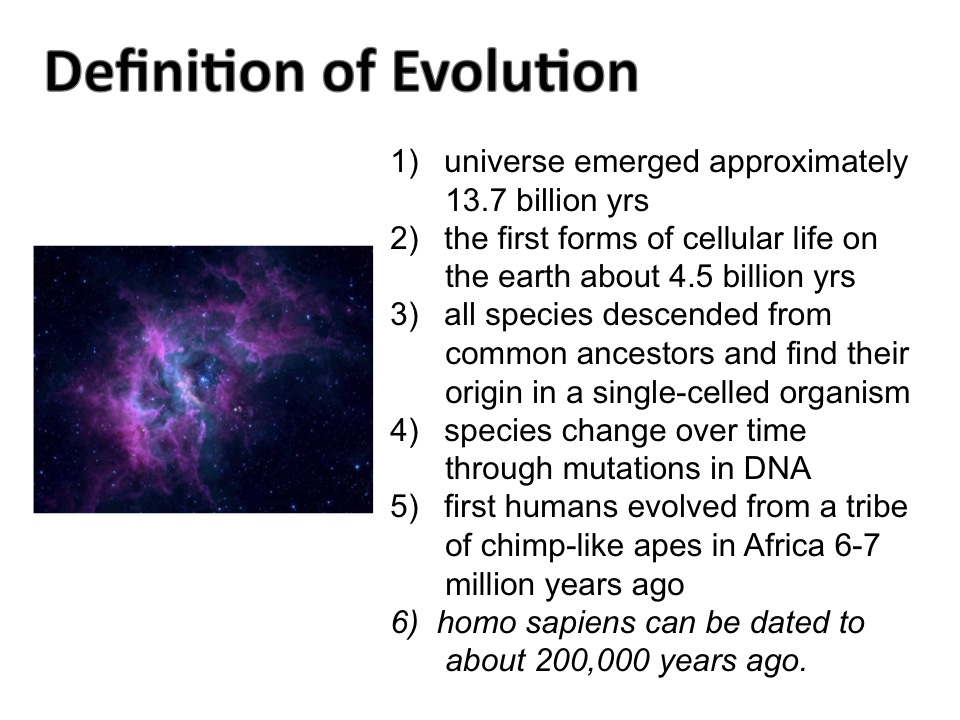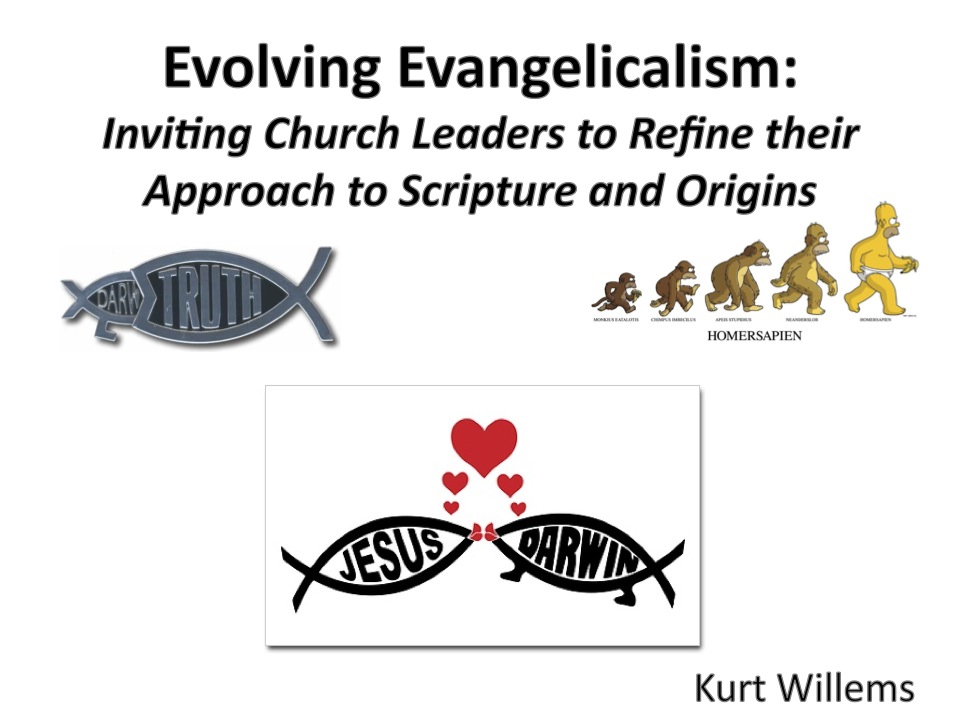The following series is based on my senior paper for Seminary. You may remember a video where I invited people to contribute their stories to help make my case. For the next couple weeks, I’ve decided to share my findings with you all. There will be a “thesis/problem” section, a “biblical theology” section, and an “application” section. I hope you will read along and share this with others! You can read the rest of the series here.
—————————————————————————————
Evolving Evangelicalism: Inviting Church Leaders to Refine their Approach to Scripture and Origins (part 1)
INTRODUCTION
During my first year as a junior high director, I was close with the “skateboarder” kids in our youth ministry. Jason, a really funny kid, enjoyed youth group, but maintained skepticism regarding Jesus. One random Monday night, Jason arrived with some exciting news.
“Kurt, guess what? I’ve decided to become a Christian!”
“Awesome, bro! I’ve been praying for you! But why the sudden change of heart?” I was completely caught off guard.
“Well, in science class the other day, my teacher said that we’re related to monkeys. I’m not related to filthy old apes, right?” At this point, Jason had all of us laughing.
“Nope, you’re not related to monkeys. That’s what the atheists believe. But as Christians we believe that God created the first humans as special – in God’s image.”
“Yeah. That’s exactly what I remember talking about the other day. You said that the first humans were Adam and Eve. They weren’t hunchbacked apes that sniff each other’s butts and scratch themselves!”
“No, they didn’t sniff each other’s butts or scratch themselves. That was probably reserved just for you and your cousin Richard!” (also in our group). The laughter nearly derailed the conversation. “Ok, ok… sorry. But yes, we believe God created the world in seven days; God spoke the universe into existence. Evolution leaves no room for God and depends on a bunch of assumptions that can’t be proven. Believing we came from monkeys takes more faith than believing God created us.”
That night Jason accepted Jesus Christ as his Creator and Savior. And as much as I love when anyone chooses to follow Jesus, this story actually illustrates a problem in many expressions of evangelical culture.
DISCERNING THE PROBLEM
For me, at the time, Jason’s experience illustrated the need for solid apologetics in the church. Now, I strongly disagree. Jason became a Christian as a result of a false polarity. His story demonstrates why the evangelical church is often perceived as antagonistic towards science. This posture of hostility communicates that embracing biblical faith is antithetical to evolution.
Essentially, evangelical culture, as I have experienced it as both a pastor and “layperson,” presents people with mutually exclusive options: A) believe in God as Creator to be a Christian or B) hold to biological evolution to be an atheist. In what follows, we will define what is meant by the term evolution, and then explore various problems that this issue raises in the church. After stating the problems and declaring a thesis, we will look at relevant biblical texts, and explore opportunities to move beyond this polarity.
Defining Biological Evolution
“[Evolution]…is a theory about how life has changed over time; it is not a theory about how life first appeared.”[1] Evolution does not answer the question of who caused the first form of life to appear, but rather explains how natural processes led to the universe’s formation.
For our purposes, we will assume that biological evolution[2] includes the following:
1) the visible universe emerged approximately 13.7 billion years ago,[3] 2) the first forms of cellular life came to be on the earth about 4.5 billion years ago,[4] 3) all species descended from common ancestors and find their origin in a single-celled organism, 4) species change over time through mutations in DNA,[5] 5) the first humans evolved from a tribe of chimp-like apes in Africa 6-7 million years ago,[6] and 6) homo sapiens can be dated to about 200,000 years ago.[7]
With this understanding of biological evolution, we move forward to problems confronting the church.
PART TWO WILL PUBLISH TOMORROW!
[1]. Karl W. Giberson and Francis S. Collins, The Language of Science and Faith: Straight Answers to Genuine Questions (Downers Grove, IL: InterVarsity Press, 2011), 37.
[2]. Throughout this paper I will use “evolution” and “biological evolution” interchangeably. To add “biological” simply reinforces that I do not refer to philosophical naturalism.
[3]. Brian Thomas Swimme, and Mary Evelyn Tucker, Journey of the Universe (New Haven: Yale University Press, 2011), 2.
[4]. G. Brent Dalrymple, The Age of the Earth (Stanford: Stanford University Press, 1991), 191.
[5]. Giberson and Collins, The Language of Science and Faith, 31.
[6]. Brian Thomas Swimme, and Mary Evelyn Tucker, Journey of the Universe, 82.
[7]. Ibid., 124.












